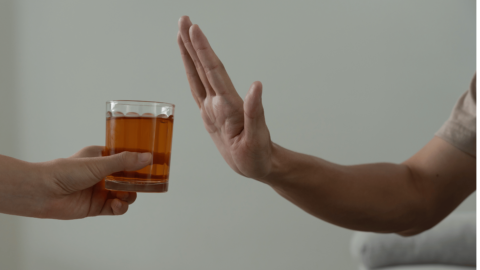Recovery is a courageous journey, and every step you take is a testament to your strength. By choosing Suboxone to manage your opioid dependency, you’ve already made a powerful choice for your health and future. But what about alcohol? While it may seem harmless, mixing alcohol with Suboxone can lead to severe setbacks—and even life-threatening risks.
This article explains why alcohol and Suboxone don’t mix, how they can derail your recovery, and offers practical tips for staying alcohol-free as you reclaim your life.
Why Alcohol and Suboxone Don’t Mix
Suboxone combines two active ingredients—buprenorphine and naloxone—that work together to stabilize opioid recovery. However, both Suboxone and alcohol depress the central nervous system (CNS). When combined, their effects can compound, leading to:
- Severe drowsiness
- Respiratory depression (slowed or difficult breathing)
- Loss of consciousness
- Increased risk of overdose
Even small amounts of alcohol can heighten these risks. For someone in recovery, these dangers outweigh any temporary relief or enjoyment alcohol might offer.
Prioritizing Recovery: Building a Strong Foundation
Recovery requires focus and stability. Alcohol can disrupt both.
Here’s why:
- Alcohol weakens judgment
It’s harder to make positive choices when under the influence, increasing the risk of relapse. - Alcohol triggers cravings
Drinking can intensify cravings for other substances, including opioids, making recovery harder to sustain. - Alcohol disrupts your progress
Recovery is about rebuilding your physical and emotional health. Alcohol slows that process by affecting sleep, mood, and energy levels.
Practical Tips for Staying Alcohol-Free
If you’re taking Suboxone, avoiding alcohol is a critical part of staying on track. Here’s how to make it easier:
- Set clear goals
Remind yourself why you started your recovery journey. Write down your reasons for staying sober and revisit them when tempted. - Create a support network
Share your goals with trusted friends, family, or support groups. Surrounding yourself with positive influences can help you stay strong. - Plan ahead for social situations
If you’re attending events where alcohol might be present, have a plan. Bring a non-alcoholic beverage, let someone know you’re avoiding alcohol, or leave early if you feel uncomfortable. - Develop healthy coping mechanisms
Find activities that reduce stress and bring you joy—exercise, meditation, art, or journaling are great options. - Talk to your doctor
If you’re struggling to avoid alcohol, let your healthcare provider know. They can connect you with additional resources or treatments to support your journey.
Suboxone, Alcohol, and Long-Term Recovery
Suboxone is a powerful tool for managing opioid dependency, but it works best as part of a holistic recovery plan. Alcohol not only interferes with its effectiveness but can also derail the progress you’ve made.
By avoiding alcohol and prioritizing your health, you’re giving yourself the best chance at a successful recovery.
FAQs: Suboxone and Alcohol
Can I drink alcohol while taking Suboxone?
It’s strongly discouraged. Combining Suboxone and alcohol can cause serious side effects, including respiratory depression, drowsiness, and an increased risk of overdose.
What happens if I accidentally drink alcohol while on Suboxone?
If you consume alcohol unintentionally, monitor yourself for symptoms like extreme drowsiness or difficulty breathing. If severe symptoms occur, seek medical attention immediately.
Why is alcohol more dangerous when combined with Suboxone?
Both substances affect the central nervous system. They amplify each other’s effects when used together, increasing the risk of dangerous outcomes like suppressed breathing or unconsciousness.
How long should I avoid alcohol after stopping Suboxone?
Discuss this with your doctor. While Suboxone clears from the system relatively quickly, maintaining an alcohol-free lifestyle can still benefit your long-term recovery.
What can I do if I’m struggling to avoid alcohol during Suboxone treatment?
Reach out to your healthcare provider for support. You can also consider counseling, support groups, or additional recovery resources to help you stay on track.
Taking the Next Step with QuickMD
Need additional support? QuickMD offers convenient telemedicine services for individuals using Suboxone in their recovery. Our licensed providers are here to answer your questions, adjust your treatment plan, and provide ongoing care—all from the comfort of your home.
Recovery is a process, but you don’t have to face it alone. With the right tools and mindset, you can overcome obstacles and reclaim your life.




